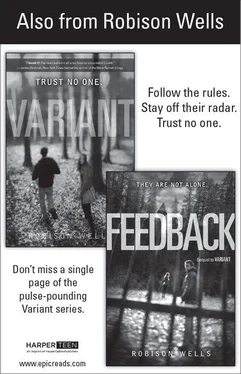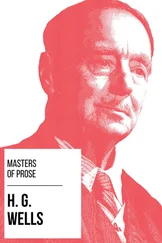“Yeah,” Kara said. Her voice was quiet, almost embarrassed. “My mom’s a secretary in the sheriff’s office. She heard what was happening and tried to hide me. We got caught in a roadblock on the Wyoming border.”
Aubrey smiled. “We tried to run too. Didn’t get very far.”
“I think most of us are like that,” Betsy said. “Fugitives, I mean. I went to my grandma’s house out on the reservation. I didn’t think anyone would look there. They came in the middle of the night.”
Aubrey thought back to what the woman had told her after her shower. They were the stragglers. Maybe the rest of her school was already here, in one of the hundreds of olive-drab military tents.
The bus door opened and the soldier gestured for the group to climb aboard. Aubrey was the last on, and even though there were plenty of empty seats, she sat next to Kara.
The bus drove east, passing tent after tent. All of them looked the same, with nothing to distinguish them other than a large number stenciled on the canvas. After about half a mile, the bus turned north, tents now on both sides in a seemingly endless array.
“My cousins are here somewhere,” Kara said. “My mom tried to get her sister to come with us, to run, but she wouldn’t. I guess it doesn’t matter now.”
“Who was with you at the warehouse?” Aubrey asked. “You hugged someone.”
Kara shook her head. “I don’t know her, really. We both got caught at the same roadblock.”
The road was bumpy and the bus was moving more slowly. They weren’t passing the front of the tents now, just the wide windowless sides, and it was harder to pick out the faces of teens.
Other vehicles were moving among the tents, too. Trucks parked in front of several, some appearing to carry supplies and others picking up garbage.
“Can I ask you a question?” Kara said, still looking out the window.
“Sure.”
“Did you know that Jack was . . . one of . . . ?”
Aubrey shook her head. “No. And he isn’t. He can’t be.”
Kara nodded and thought for a moment. “I’ve heard that some people aren’t even aware they have it.”
“This isn’t like that,” Aubrey said. “He’s not sick. There must have been a mistake.”
“I mean,” Kara said, talking slowly, “if he’s sick, then maybe he gave it to you?”
“He’s not sick,” Aubrey insisted.
“Okay.”
The bus turned one more time and then stopped in front of Tent 209. A Humvee was waiting for them, and six soldiers stood in front of the door. Slowly, Aubrey and the others filed off the bus, and one of the soldiers directed them into the large tent.
Aubrey paused just inside the door as her eyes adjusted to the darkness.
The layout wasn’t unlike the warehouse they’d left earlier—bunk beds lined the walls, and two tables were in the center. In one corner was a row of shelves, stocked floor to ceiling with boxes. The floor was wood, and sand showed beneath the slats.
“Everyone please gather in the center of the room,” one of the soldiers said. “Feel free to take a seat.”
“I don’t know if this is better or worse,” Kara said.
Aubrey smiled and chose a seat. Kara and Betsy sat with her.
“When are we going home?” the young boy asked, but the soldier merely pointed him toward a chair.
A man walked in front of them. He was the first soldier Aubrey had seen who was not wearing fatigues. Instead, he wore a more formal uniform, with a green jacket and tie. Medals and insignias were pinned to his chest.
“My name is Major Bowman,” he said, his voice soft but emotionless. “You are in Relocation Center Five, Tent 209. I know that this must seem very foreign, perhaps even a little scary, but I assure you, everything that has been done is for your safety.”
One of the boys, who had been wearing all black before decontamination and sported the beginnings of a thin beard, swore and laughed. “This is not for our safety.”
Bowman scowled at him and continued talking. “You may have had friends who were detained for further questioning. Trust me—they will be fine. They have showed the early warning signs of a debilitating disease, and it is in the interest of national health to quarantine them temporarily.”
The boy swore again.
Bowman took a step forward. “What is your name, son?”
“Simon Fisher,” the boy said. “So what?”
“Simon Fisher,” Bowman repeated, staring down at the boy. “You’re a tough guy, huh? Weren’t you found in the freezer of a burger shop? Hiding all alone behind a bag of frozen fries?”
“We shouldn’t have to hide from the government,” Simon answered. His voice was firm, but he looked unsure of himself.
“Let me tell you something,” Bowman said, stepping forward and leaning down until his face was right in front of Simon’s. Bowman’s voice remained as calm as before, but it was hard and cold. “You fled the police and military, and you were lucky that you didn’t get shot when we found you. You wouldn’t have been the first. My division has lost more than two hundred men in the past five days, just trying to keep little brats like you alive.”
Bowman took a step back and again addressed the group. “We have limited manpower here. You’ll notice very few guards. But we’re not going to have any trouble, are we?”
No one in the group spoke. Aubrey felt sick.
“Let me be clear,” Bowman said. “We have a method for dealing with those who are causing trouble. Tent 209 can be retested for the disease. And, in my experience, there’s a strange correlation between those who cause trouble and those who get sent to quarantine.”
Simon opened his mouth to speak, but didn’t say anything.
“I’ve also found,” Bowman said, sitting on the edge of a table, “that if one person in a tent goes to quarantine, then others in the tent get sent to quarantine as well. So you’ll be well served by keeping an eye on your friends.”
Aubrey glanced at Kara and their gaze met for a moment. Kara looked terrified, and Aubrey felt the same. If this was what it was like for the Negatives, how were things for the Positives? For Jack?
Bowman stared at them for a moment, and then stood and turned. He pointed at the shelves in the corner, and a soldier standing next to them. “This is your primary point of contact for all needs. This man will provide you with all necessaries: food, clothes, blankets. If you have a problem, talk to him. He’s assigned to Tents 201 to 220.” He looked back at the group, his eyes meeting Aubrey’s. “Other than that, your orders are to wait. Do not think that you have been forgotten and that you need to register a complaint. You will be returned to your homes as soon as the crisis has passed.”
The young boy raised his hand. Aubrey cringed, hoping he wouldn’t make Bowman angry.
“Excuse me,” the boy said. “What is the crisis? No one really knows.”
Bowman glared at the boy for a moment and then put his hands behind his back. “From our best estimates, 180,000 Americans have been killed in the last three weeks. The origin of the terrorists, if it is known at all, has not been divulged to me. But we do know that the attackers have the illness for which you were all screened, and we know that the illness makes people dangerous.”
Aubrey’s heart sank, nausea and fear swelling inside her.
“For now,” Bowman said, his expression slightly softened, “proceed to the supply station. They have orientation packets for you. We’ll get you home as soon as we can.”
User: SusieMusie
Mood: Pissed off
Have you ever seen that movie Chicago? Erica = Roxie, and Sara = Velma. Both should be locked up ASAP. They’re both crazy and they deserve each other. They are a severe, SEVERE pain in my butt.
Читать дальше












